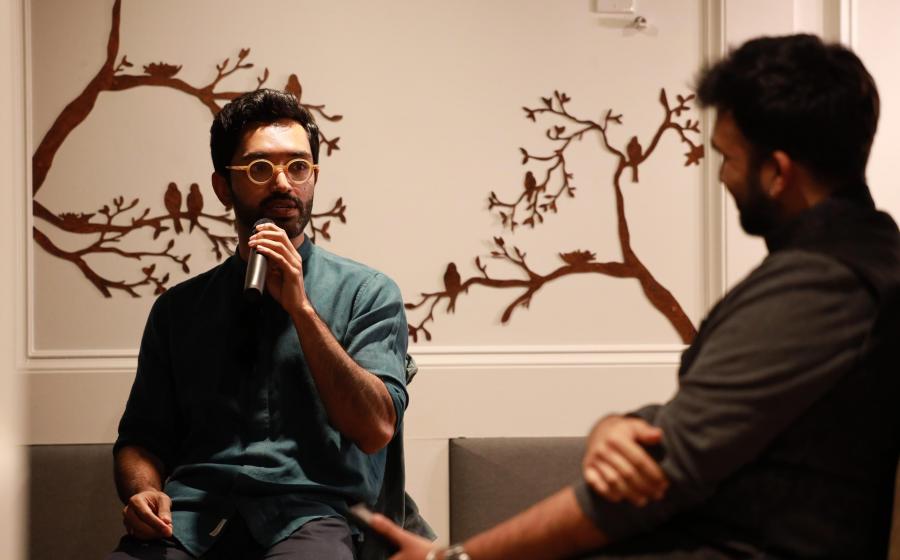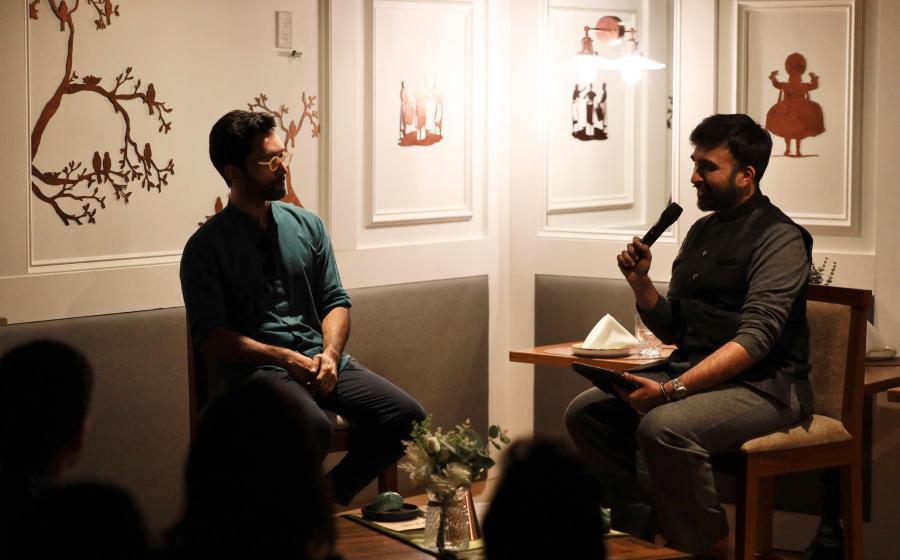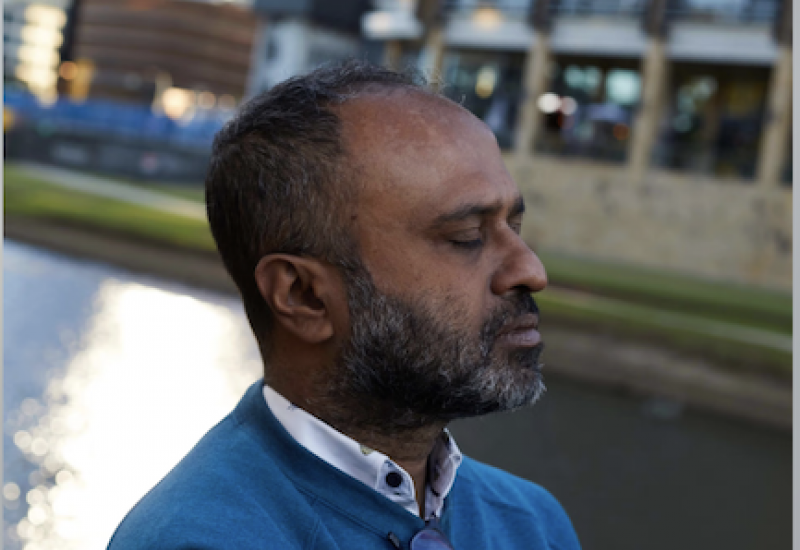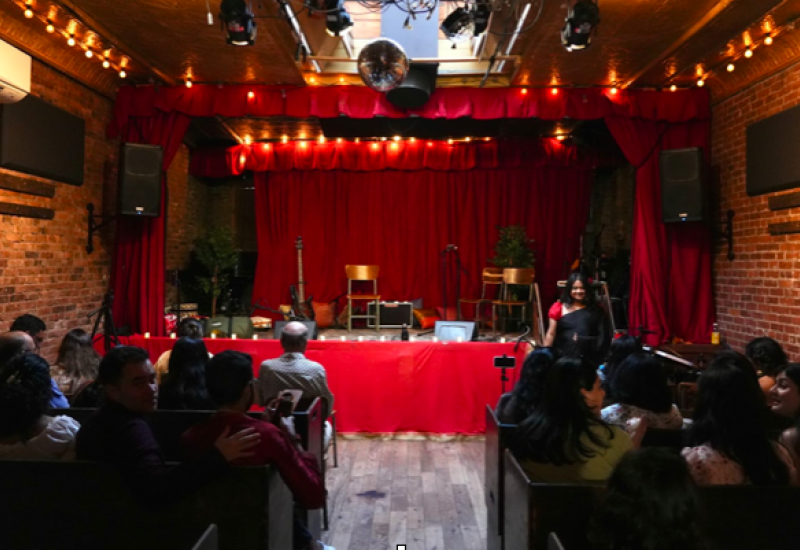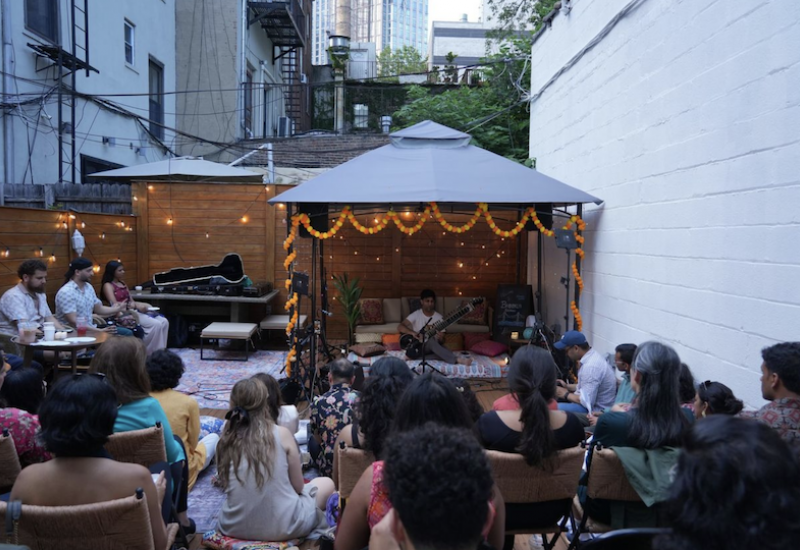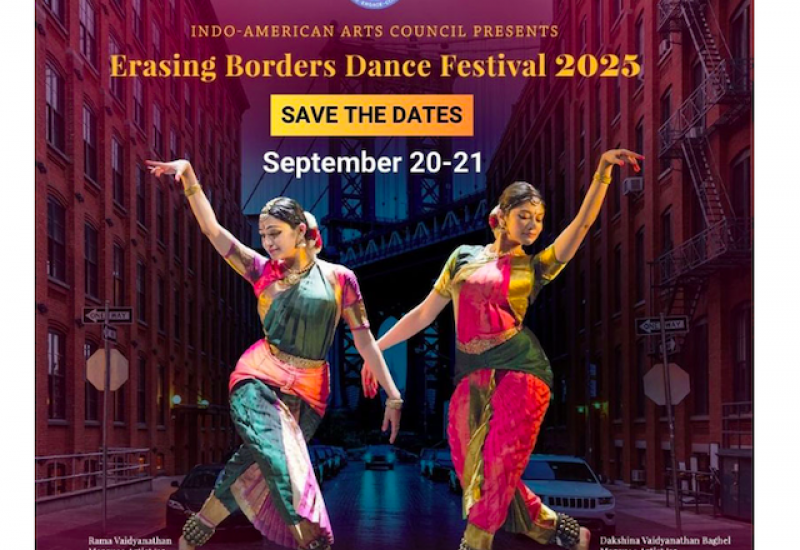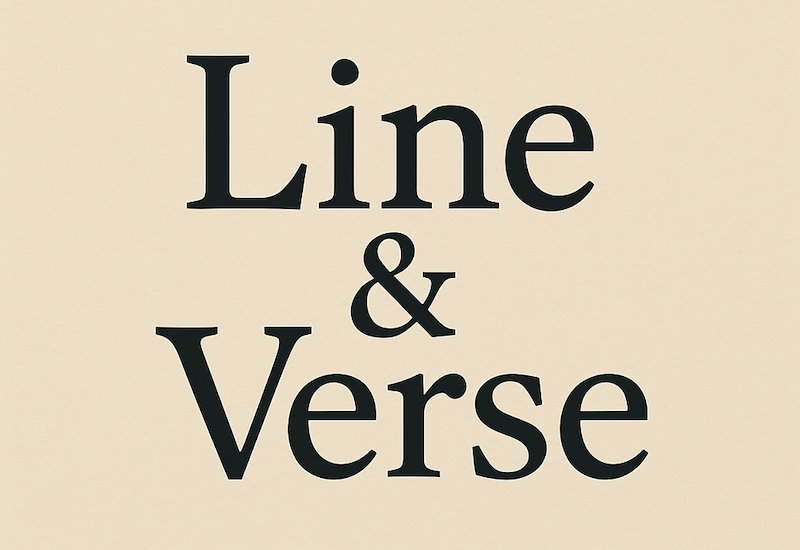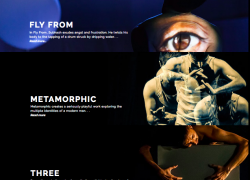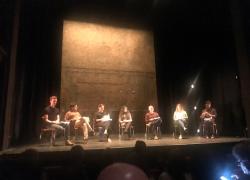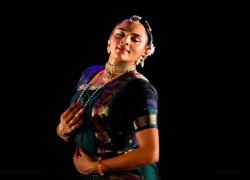Echoes of the Ordinary – An Interview in New York City with Dr. Manu S Pillai
Alita Maria Stephen for Line & Verse
The sound came from the fields. A woman’s name, called out loudly and without reverence. Kalyani paused. It was her own name she heard, drifting through the humid air of Kerala in the 1940s. The voice belonged to one of the peasants who worked her family’s land, a man who by the rules of caste was forbidden from even uttering her name. Yet here it was, shouted boldly across the paddy. Soon she realized what had happened. The farmhands, Dalits who were considered “untouchable,” had named every cow and buffalo after her family members. The names they were banned from speaking in daily life now rang out freely through the fields. What began as mockery was also a quiet act of rebellion. Through humor, they found a way to speak truth to power.
This was one of the stories about his grandmother that historian and author Dr. Manu S Pillai recalled during his conversation at Chatti, in New York City, on September 30th, in an interview led by Dhruva Lakshminarayanan. The evening unfolded like a tapestry of memory, politics, and resistance, stitched together with wit and reflection. As the aroma of curry leaves and mustard seeds lingered in the air, Manu spoke of how ordinary people, often denied a voice, have always found subtle ways to push back against the structures that confine them.
He shared another story, this one closer to home. His grandmother, as a young woman, was confined to a separate room during her period, as was the custom then. She was forbidden from touching anything in the household. Years later, she told Manu that during those nights, she would quietly step out and touch everything she was not supposed to. Her father’s desk, his clothes, the grain jars in the kitchen, the sacred and the ordinary alike. She could not argue with words that she did not yet have, but her small act of defiance was her own way of claiming agency. “She could not deliver a feminist speech,” Manu recalled, but she found her language of protest. These stories, as he explained, are at the heart of his fascination with what he calls the weapons of the weak. The quiet, clever, and deeply human ways in which people resist authority.
That concern for the overlooked also defines his body of work. Manu’s first book, The Ivory Throne, told the story of Sethu Lakshmi Bayi, the last Maharani of Travancore. To the world, she was royalty, but history reduced her to a mere footnote. Manu restored her to the center, giving her the space she had been denied. Across his books, the themes of caste, gender, and resistance recur, not as academic abstractions but as lived realities with texture and contradiction.
When the conversation turned to religion, Manu’s observations were layered and thought-provoking. He described how Hinduism, before colonial rule, existed as a diverse range of local practices. It had no single text or authority. Under British influence, however, it began to take on a more uniform structure. The Bhagavad Gita, long respected but never central, came to be treated as the “Bible” of Hinduism. This shift, he explained, was a product of colonial and missionary contact. A religion that had once embraced multiplicity began to feel pressure to define itself in singular terms.
Manu illustrated this through two contrasting interpretations of the Gita. Bal Gangadhar Tilak saw it as a revolutionary text, urging Indians toward armed resistance against British rule. Mahatma Gandhi, reading the same verses, found a call for nonviolence and spiritual strength. Both men were devout. Both read the same book. Yet their readings, interpretations, and applications diverged entirely.
The discussion then expanded to the ways religion adapts as it travels. When Christianity reached Ireland, it absorbed local customs and festivals. When Islam arrived in South India, it too blended with native traditions. Families became matrilineal because that was the existing social structure in Kerala. Mosques resembled temples more than those in Saudi Arabia. Even Christianity in Kerala adapted to local hierarchies, creating its own caste divisions. In some temple rituals, the oil and ghee had to be purified by the touch of a Christian. A Christian’s touch was believed to neutralize the oil’s worldly or ritual impurities before it entered sacred use. This serves as a reminder of how deeply interwoven faiths and practices were, each finding a place within the larger rhythm of society and belief. Faith, Manu reminded the audience, has always been fluid, rooted in place and people rather than rigid ideology.
Throughout the evening, Dhruva guided the conversation with warmth and precision. His questions were thoughtful, drawing out not just the historian in Manu but the storyteller who sees the political in the personal. The audience listened intently, many of them Malayalees who found a quiet joy in seeing one of their own speak with such insight in a city like New York.
It felt fitting that this conversation took place at Chatti, the city’s only Kerala restaurant, where food, language, and memory come together in the same space. The evening was more than an interview. It was a reminder that history is not only written in books. It lives in whispered acts of defiance, in the names we dare to speak, and in the stories we continue to tell.

